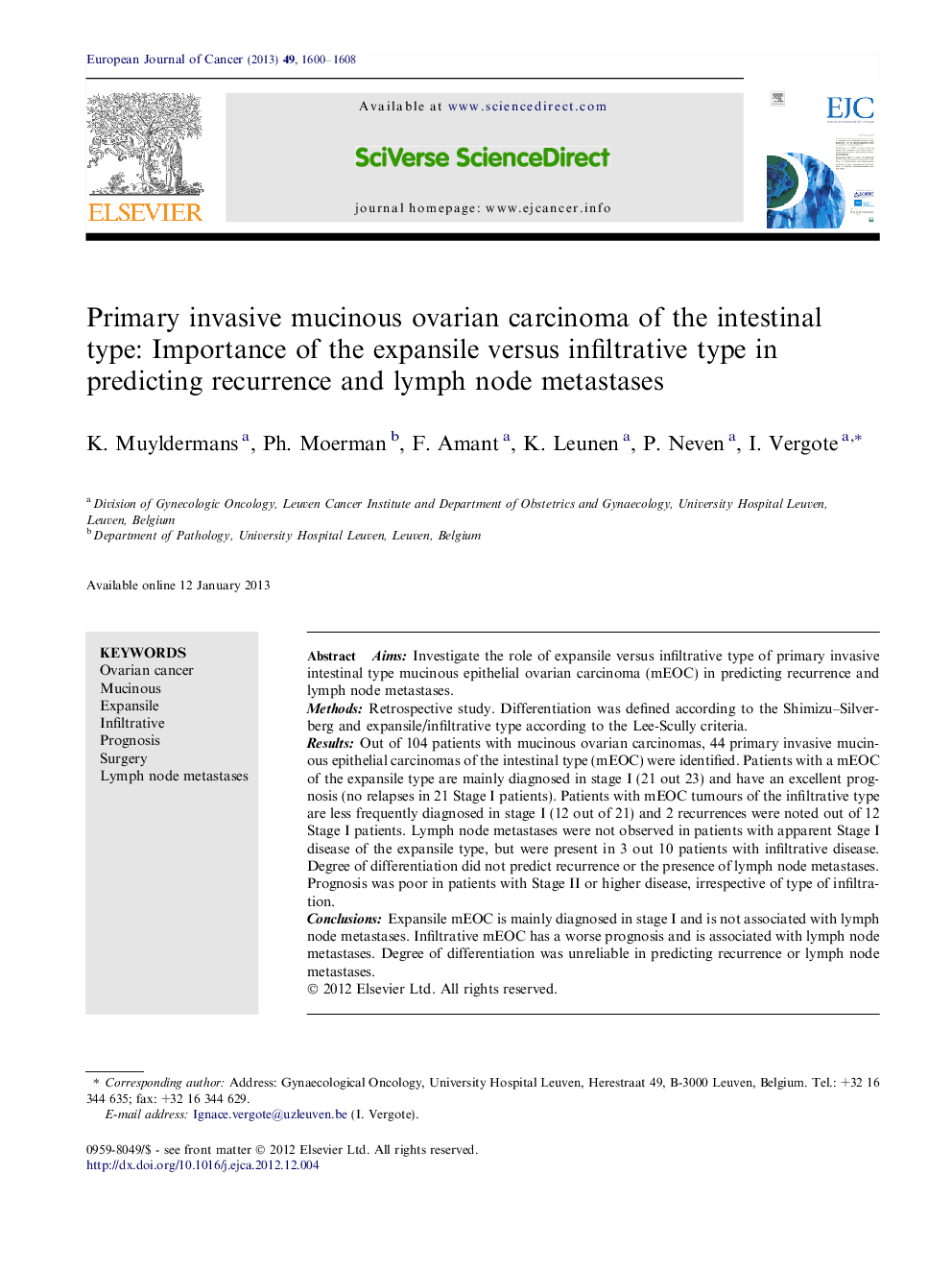| Article ID | Journal | Published Year | Pages | File Type |
|---|---|---|---|---|
| 2122510 | European Journal of Cancer | 2013 | 9 Pages |
AimsInvestigate the role of expansile versus infiltrative type of primary invasive intestinal type mucinous epithelial ovarian carcinoma (mEOC) in predicting recurrence and lymph node metastases.MethodsRetrospective study. Differentiation was defined according to the Shimizu–Silverberg and expansile/infiltrative type according to the Lee-Scully criteria.ResultsOut of 104 patients with mucinous ovarian carcinomas, 44 primary invasive mucinous epithelial carcinomas of the intestinal type (mEOC) were identified. Patients with a mEOC of the expansile type are mainly diagnosed in stage I (21 out 23) and have an excellent prognosis (no relapses in 21 Stage I patients). Patients with mEOC tumours of the infiltrative type are less frequently diagnosed in stage I (12 out of 21) and 2 recurrences were noted out of 12 Stage I patients. Lymph node metastases were not observed in patients with apparent Stage I disease of the expansile type, but were present in 3 out 10 patients with infiltrative disease. Degree of differentiation did not predict recurrence or the presence of lymph node metastases. Prognosis was poor in patients with Stage II or higher disease, irrespective of type of infiltration.ConclusionsExpansile mEOC is mainly diagnosed in stage I and is not associated with lymph node metastases. Infiltrative mEOC has a worse prognosis and is associated with lymph node metastases. Degree of differentiation was unreliable in predicting recurrence or lymph node metastases.
